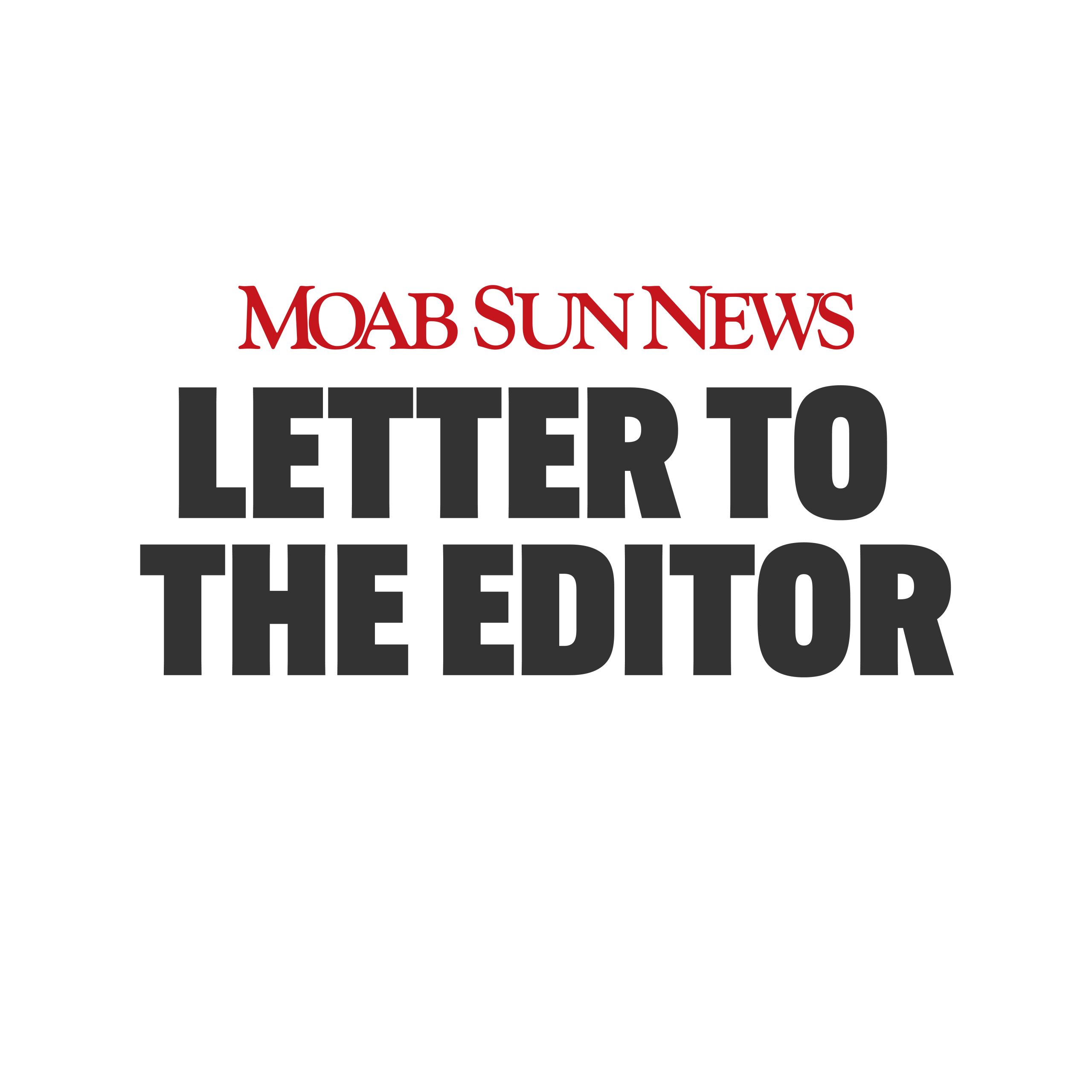Some information may be outdated.
Last week, the Rural Utah Project’s Sam Van Wetter wrote a letter supporting the candidacy of Emily Campbell for County Commission. Emily is the County’s Planning Commission Chair, and Sam Van Wetter is also running for elected office as Fire Commissioner.
Over recent months, I’ve attended a number of Moab City’s visioning workshops. They’ve been a fantastic experience with a great cross-section of Moab’s community sitting together, finding common ground, crafting shared visions for our community’s future. Through these workshops, I’ve become more mindful of the potential negative impacts of outside influences on local politics. These workshops have also furthered my understanding of how these influences might not impact Moab’s future for the best.
With that in mind, I was surprised to learn that the Rural Utah Project (RUP) is a subsidiary (‘related organization’) of the Southern Utah Wilderness Alliance (SUWA), a non-profit that has been directed for decades by the Jackson, WY based billionaire, Hansjörg Wyss (Source: https://apps.irs.gov/pub/epostcard/cor/942936961_201912_990_2021012817670393.pdf).
Moab City’s Planning Commission is presently chaired by Kya Marienfeld, a SUWA attorney. She serves on the commission alongside SUWA’s Stewardship Director, Jeremy Lynch.
I have little doubt that Kya, Jeremy, Emily and Sam are passionate about finding creative, permanent solutions to our housing crisis and I applaud their public service.
At the same time, I’m now more cautiously mindful of the disproportionate influence a large, well-funded, outside organization like SUWA might wield over our decision-making bodies. SUWA spends about $4 million each year, and between 2017 and 2020 it directed over $1 million to its subsidiary, the RUP (Source: https://projects.propublica.org/nonprofits/organizations/942936961). While I believe SUWA does some very good work in public lands preservation, its track records on housing and affordability more broadly are less clear to me.
Given that SUWA’s RUP is endorsing candidates, I do think it’s reasonable to question who’s ultimately calling the shots here: Moab locals who are vested in our community’s future, or outside billionaires who might have a vision for Moab that many of us might not share?
I believe transparency is essential for good government, especially at the local level. So I’m hoping that SUWA and its RUP will provide us with more information about who funds their organizations, and how the priorities and values of their large funders align with those of Moab’s people. Because if their vision for Moab is another exclusive, closed-gate enclave like Jackson Wyoming—as Moab’s exorbitant cost of living increasingly suggests—then I’m inclined to say thanks, but no thanks.
More transparency? Yes please.
Wendell Williams, Moab
The Moab Sun News reached out to SUWA and Rural Utah Project representatives for a response:
Over the last several years, a handful of members of the Southern Utah Wilderness Alliance’s board of directors have articulated a need for a new grassroots organization in Utah that could effectively advocate on issues ranging from equal representation and voting, to housing and emergency services, and, of course, public lands protection. They helped to create the Rural Utah Project in 2017, and have advocated for SUWA to continue to support RUP’s work with a recurring grant in the subsequent years.
In the five years since then, the Rural Utah Project has shared SUWA’s goal of bringing more voices to the table and changing outdated perceptions of who lives, works, and votes in rural Utah, but we’ve also moved beyond SUWA’s focus on public lands. We’ve worked hard to remove barriers to voting and participation in public processes across rural Utah and improve access to emergency services through our Rural Addressing Project on the Navajo Nation. We’ve utilized innovative technology, educational tools, and local storytellers to identify and register voters and challenge the idea that rural Utah is a political and cultural monolith, and we’ve engaged in issues important to local communities, like Grand County’s efforts to stop the proposed Book Cliffs Highway boondoggle.
I’m proud of the work the Rural Utah Project has accomplished over the last five years, and I’m proud that most of the Rural Utah Project’s staff live in the rural Utah communities we work in. I’m excited about the possibilities the next five years will bring as we continue to expand our team of local organizers in rural Utah’s diverse and beautiful communities. You can learn more, and get involved, at our website, www.ruralutahproject.org, or by contacting our local Moab organizer, Sam Van Wetter, at sam@ruralutah.org. I hope you’ll join us.
TJ Ellerbeck, Rural Utah Project, Executive Director
Appreciate the coverage? Help keep local news alive.
Chip in to support the Moab Sun News.



